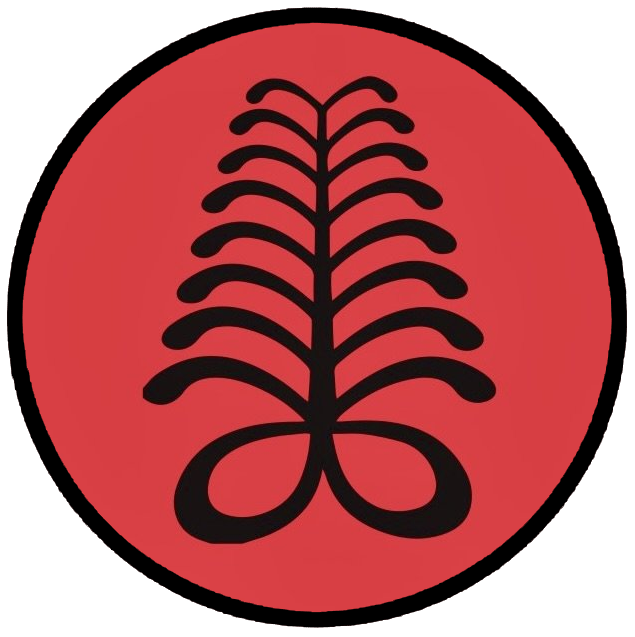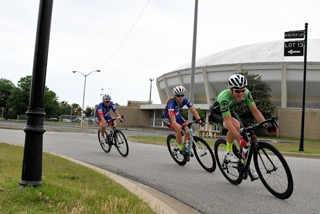Athlete Interview: Wendy Fejfar
Marilyn Chychota: Tell us about your background. Where are you from, professional history, background in sports and in women's development.
Wendy Fejfar: Professionally I am a Clinical Exercise Physiologist, certified Exercise Physiologist and Personal Trainer through the American College of Sports Medicine. I am also a certified running coach. I grew up outside of Buffalo, NY and relocated to Florida for my undergrad and graduate studies. I now live outside of Memphis in Olive Branch, MS. I have always been a tomboy and became involved in team sports in 8th grade. I don’t think I have stopped since!
I have always been what I would like to refer to as a “strong woman.” Growing up, I was always substantially taller than my peers, wore glasses, and was always a little awkward. With sports, I was able to embrace my height and enjoyed feeling stronger and faster with each practice. It gave me a lot of confidence. I remember my grandfather saying to me, “Girls don’t need muscles.” I would always come back with a “why not?’ To this day, this still rings true. I am so glad I didn’t “listen” to him because through my own journey with sports, I am a much happier and stronger woman, wife, and mother. With this always at the back of my mind, my ultimate goal has been to empower women to embrace their bodies and capitalize their strengths, both physically and mentally, through the use of fitness and sport.
Currently I “work” (i.e. volunteer) as a coach for the Women Run/Walk Memphis 5K program and as a Trek Women’s Advocate.
MC: What kind of involvement do you have in women's sports or professional careers? Giving women equal opportunity and solid ground to continue to develop as woman athletically and professionally.
WF: I am definitely on the small scale side of women’s sports. My goal has always to empower women using sports like running or cycling to help them feel important. Too often, women put everyone else before themselves and never take anytime to work on their own strengths. I have found my niche working with more of the beginner athletes. I help encourage and coach women for their first 5K or get them out on a bicycle so they can work toward riding a long charity ride or do a race. I also teach women how to make their bodies strong through exercise thereby improving their own self esteem which leads them to live a happier and healthier lifestyle.
As a competitive triathlete and cyclist myself, I am outspoken at local events to encourage race directors to give women an equal opportunity. Whether it be equal payouts, better race time slots, and promoting to bring in more women to races.
MC: Describe how you got involved in woman's equality. What led you to your current position ? What is your goal through your current project?
WF: As an competitive athlete I had to get involved in woman’s equality in sport. Too often women are treated as “second class citizens.” I couldn’t just stand by and let it happen so I have been active and outspoken at our local races to push towards equality and even though we’re not there yet, progress has been made.
My current project has been serving as a Trek Women’s advocate to get more women on bikes more often. I live in DeSoto county, MS which is one of the unhealthiest parts of the country. I have been working for the past year to get more women cycling outside for fitness and fun. It’s been awesome to meet several women, learn about their insecurities, and push them a little farther than they have gone before. Social media has been a great tool because I don’t realize the impact I made until later I read about the ladies bragging on their cycling accomplishment for the day. It’s awesome!
MC: Several things have changed about woman in sports and professionally over the last ten years. Describe some of the biggest changes you’ve seen during your time, and what your involvement has been in these changes.
WF: I can only speak from a personal and local level. I have always felt triathlon on the local level has been relatively equal. We are seeing small steps made by the bigger triathlon brands, like WTC/Ironman but there is still more work to be done.
Cycling, on the other hand, has so much farther to go. However, I have found by being proactive with our local race directors, we have made some definite strides in the right direction. In our local crit series, the women’s race was being held at 4pm whereas the pro 1/2/3 men went off at 6:45pm. This series is held on a Wednesday night so many women couldn’t make the 4pm time. After talking with the race director, we were able to move the women’s race (which is Pro 1/2/3/4/5) to the 6:15pm time slot for the last 2 years. There are more spectators and more women participating due to this time change. Another example which happened this year at the first crit race was we women finished our race and were told there was no pay out for the women…at all. Meanwhile, my husband, who is also a cat 3 racer, had just won $100 in preme money in his race. I approached the race director and simply asked how they justified the fairness is not paying the women, who raced just as hard as anyone out there, who paid the same amount of money to register, who put in just as much time in training and preparing as our male counterparts…the women were paid. I feel once the conversation is started and the inequality is glaring at you, it’s easy to see the injustice. However, how to improve the equality as far as media coverage and sponsorship is not as easy to answer.
MC: Describe some of the obstacles you face, or maybe some things that frustrate you in women's development. What kinds of changes would you like to see, either nationally, internationally or with the sport in general?
WF: On the grander scale, I feel the emphasis on body image for women is frustrating. Even more on the sport side. I was sitting at the awards ceremony for Ironman Louisville waiting for my husband to receive his award and the winner of the female 20-24 age group was called up. They announced her splits and she kicked butt but an older woman behind me said a little too loud “wow, she’s big.” I turned around and looked at her and said “really?’ What I saw up on that stage was a strong and powerful young woman. She may not have fallen into what fitness magazines define as “fit” but she obviously beat everyone in her age group at one of the hardest tests of physical fitness.
On a personal side, I have been trying to get more women to my Trek Women’s rides and in a discussion with some of the guys at the shop they suggested I was too “intimidating.” When I asked for them to elaborate, they said because I was fit and wore tight cycling kits, beginner women may be intimidated by me. When do we stop judging each other as athletes by how we look?
MC: What are your plans and goals for your career ? How do you see your future in the role of helping woman continue to develop professionally and athletically?
WF: Due to my “mom” responsibilities, I no longer personal train on a professional level. I am limited to my volunteer jobs and racing. I have been asked to continue for another year as a Trek Women’s Advocate and would like to extend my duties to work with the general community to make a non-bike friendly area more bike-friendly. By doing so, I can get more cyclists out on the roads and everyone working to a better and healthier lifestyle.
MC: Who are some of your major influences, people you look up to, etc.? Who are the people you want to thank for your success?
WF: My mom - she was never athletic but she always encouraged me to do anything I wanted to do. She has been fighting Parkinson’s disease for over 15 years and I do things, like racing, because it’s very real that there may be a day where I will not be able to.
Wendy Whiteside - the gym teacher who told me to try out for basketball because I was the tallest girl in school. I don’t think she realized that having her encouragement to try out began my adventure and later passion for sport.
My husband and son - at the end of the day, I am an amateur athlete. It really doesn’t matter if I win or if I lose. I am inspired by my boys to do my best and to make them proud. I hope that I am teaching my son that things aren’t always easy but if you work hard, you will achieve your goals.
So many other women I have encountered over the years - Gina Harden, Lesley Brainard, Kirsten Sass, Marilyn Chychota, Sue Aquila, Amanda Schulz to name a few. All women who empower other women without short changing themselves. They are strong women who embody their sport/profession with humbleness, strength, assertiveness, and grace.

